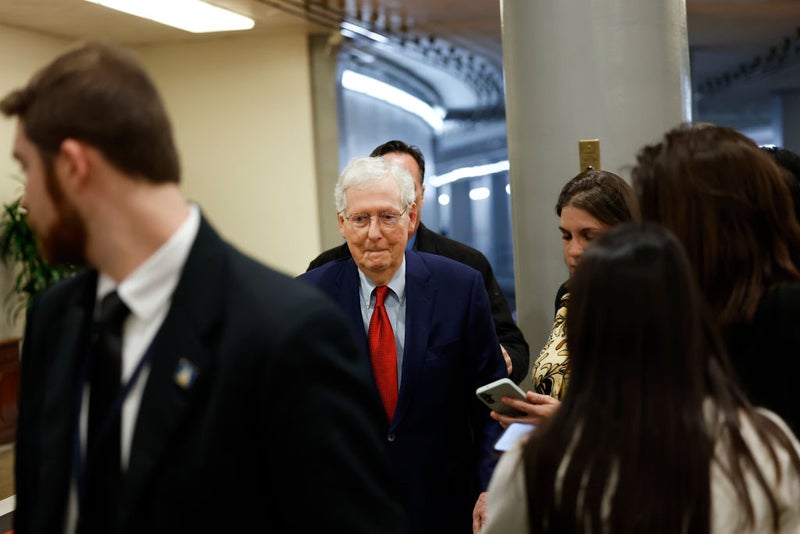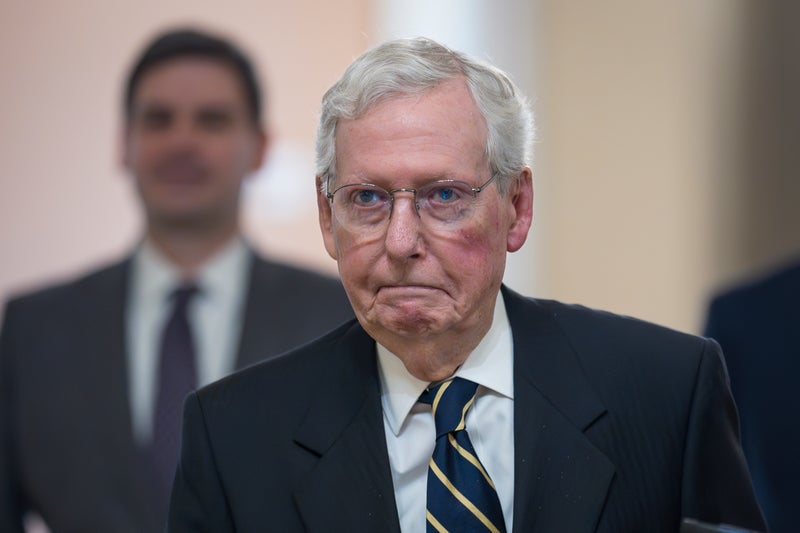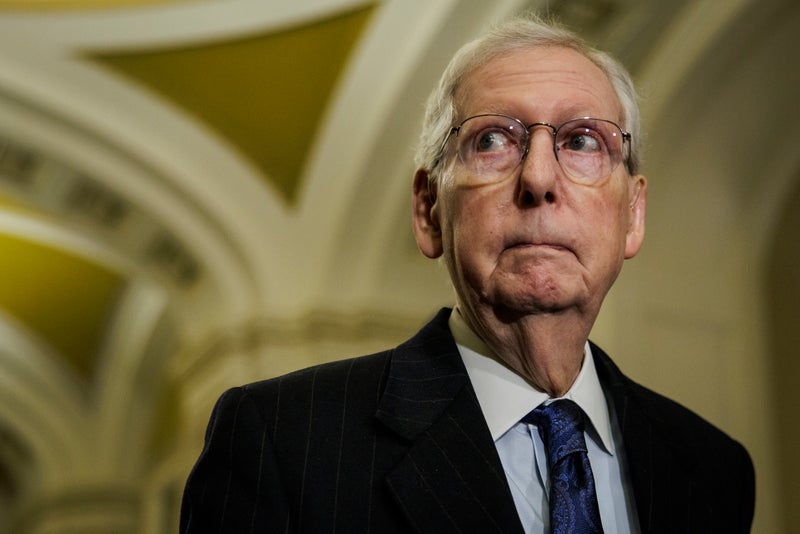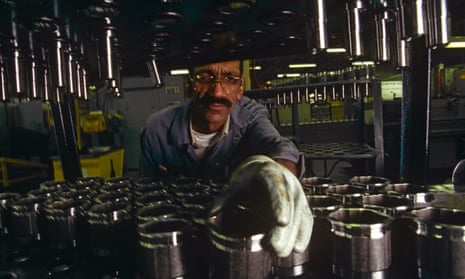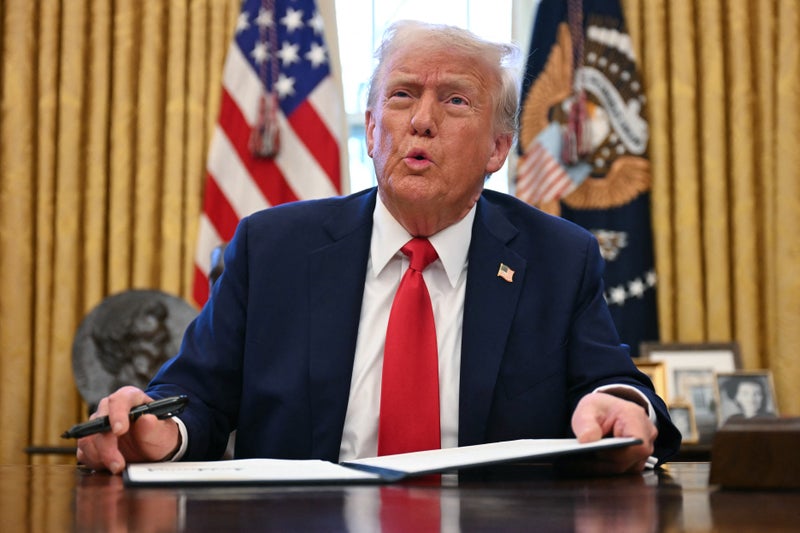Whenever you see a horror of anti-democratic rule, remember Mitch McConnell. You have him to thank. You would think that this is exactly what Mitch McConnell wanted. McConnell, the 83-year-old Kentucky senator – who announced last week that he will retire in 2026 and not seek an eighth term – is one of the most influential Republicans in the history of the party. But he has in recent weeks expressed dissent and discontent with the direction of the Republican party. He voted against some of Donald Trump’s cabinet appointees, refusing, for example, to cast a vote for the confirmation of the anti-diversity campaigner and alleged rapist and drunk Pete Hegseth.
![[Moira Donegan]](https://i.guim.co.uk/img/uploads/2022/03/19/Moira_Donegan,_L.png?width=180&dpr=1&s=none&crop=none)
He has also voiced some tepid and belated opposition to Republicans’ extremist agenda, citing his own experience as a survivor of childhood polio as a reason for his opposition to Republican attacks on vaccines. But the Republican party that McConnell is now shaking his head at is the one that he created. He has no one but himself to blame.
Over his 40 years in the US Senate, with almost two decades as the Republican leader in the chamber, McConnell has become one of the most influential senators in the nation’s history, radically reshaping Congress, and his party, in the process. Few have done more to erode the conditions of representative democracy in America, and few have done more to enable the rise of oligarchy, autocracy and reactionary, minoritarian governance that is insulated from electoral check. Mitch McConnell remade America in his own image. It’s an ugly sight.
In the end, McConnell will be remembered for one thing only: his enabling of Donald Trump. In 2021, after Donald Trump refused to respect the results of the 2020 election and sent a violent mob of his supporters to the Capitol to stop the certification of the election results by violent force, McConnell had an opportunity to put a stop to Trump’s authoritarian attacks on the constitutional order.
McConnell never liked Trump, and by that point, he didn’t even need him: he had already won what would be his last term. He could have voted to convict Trump at his second impeachment; if he had, it’s likely that other Republican senators would have been willing to do so, too, and that Trump could have been convicted and prevented from returning to power. He didn’t. McConnell voted to acquit, and to allow Trump to rise again. If the next four years of Trump’s restoration are anything like the first 30 days have been, then that will turn out to have been the singularly significant decision of McConnell’s career.
But McConnell had been working against American democracy long before Trump sent the mob to ransack the Senate chamber and smear feces on the walls. It was McConnell, after all, who is most responsible for the current campaign finance regime, which has allowed unlimited amounts of dark money spending to infiltrate politics – making elections more influenceable, and politicians’ favor more purchasable, in ways that tilt public policy away from the people’s interests and towards those of the billionaire patron class.
Such arrangements of funding and favors are not consistent with democracy; they change politicians’ loyalties, diminish the influence of voters, diminish constituents and their needs to a mere afterthought or communications problem in the minds of elected representatives. This was by design, and it is how McConnell liked it. In Washington, he operated at the center of a vast funding network, moving millions and millions of dollars towards those Republicans who did his bidding, and away from those who bucked his authority.
It was partly his control over this spiderlike web of wealthy funders that allowed McConnell to exert such control over his caucus. It is hard to remember these days, when Republicans pick so many fights with each other, that the party was once feared for their discipline. McConnell was able to snuff out any meaningful dissent and policy difference in public among Republican senators with the threat of his deep-pocketed friends, always ready to fund a primary challenger. The lockstep from Republicans allowed McConnell to pursue what he viewed as his twin goals: stopping any Democratic agenda in Congress, and furthering the conservative capture of the federal courts.
As Senate Republican leader during the Obama years, McConnell pursued a strategy of maximal procedural obstructionism. His mandate was that no Republican in the Senate would vote for any Obama agenda item – that there would be no compromise, no negotiation, no horse trading, no debate, but only a stonewalled total rejection of all Democratic initiatives. This has become the singular way that Republicans operate in the Senate; it was McConnell who made it that way.
The underlying assumption of McConnell’s strategy of total opposition and refusal was that Democrats, even when they win elections, do not have a legitimate right to govern. In practice, the authorities of the presidency or congressional majorities expand and contract based on which party is in power: Republicans can achieve a great deal more in the White House, or with control of Congress, than Democrats can.


